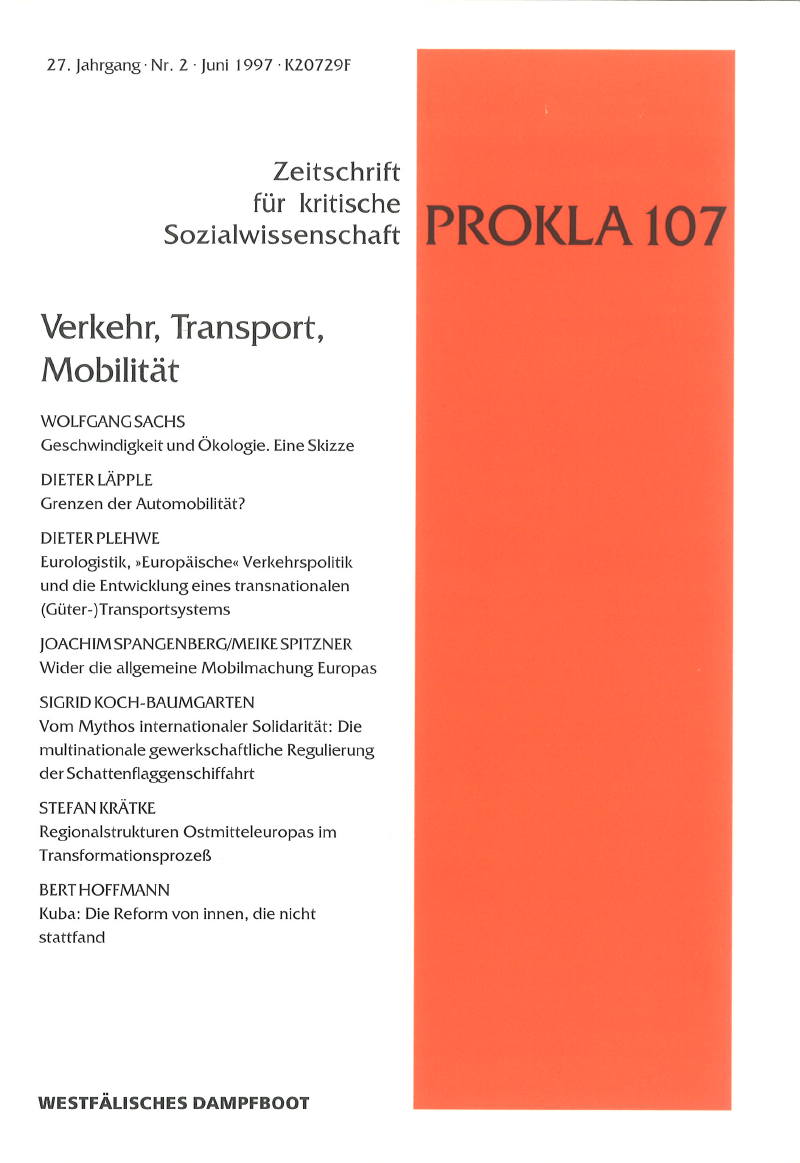Vom Mythos internationaler Solidarität
Die multinationale gewerkschaftliche Regulierung der Schattenflaggenschiffahrt
DOI:
https://doi.org/10.32387/prokla.v27i107.882Keywords:
Solidarität, Gewerkschaft, Regulierung, Schifffahrt, Mobilität, GlobalisierungAbstract
The article analyses the attempts of trade unions organized in the International Transportworkers' Federation (ITF) to establish a system of multinational industrial relations and collective bargaining in the flags-ofconvenience shipping. Although based on egoistic national special interests and without formal restrictions on national souvereignity the co-operation leads to an international regime. lt regulates the rights to organize and represent crews in industrial relations, minimum standards for working conditions and incomes, and procedures for the multinational decisionmaking process and management of conflicts. The trade unions, regulating about 20% of flags-of-convenience shipping, suceeded in establishing a multinational control of national collective bargaining. This success is based on an imbalance of power between trade unions of industrialised and developing countries within the ITF and on specific conditions in transport industry, and therefore not transferable to other industries.






